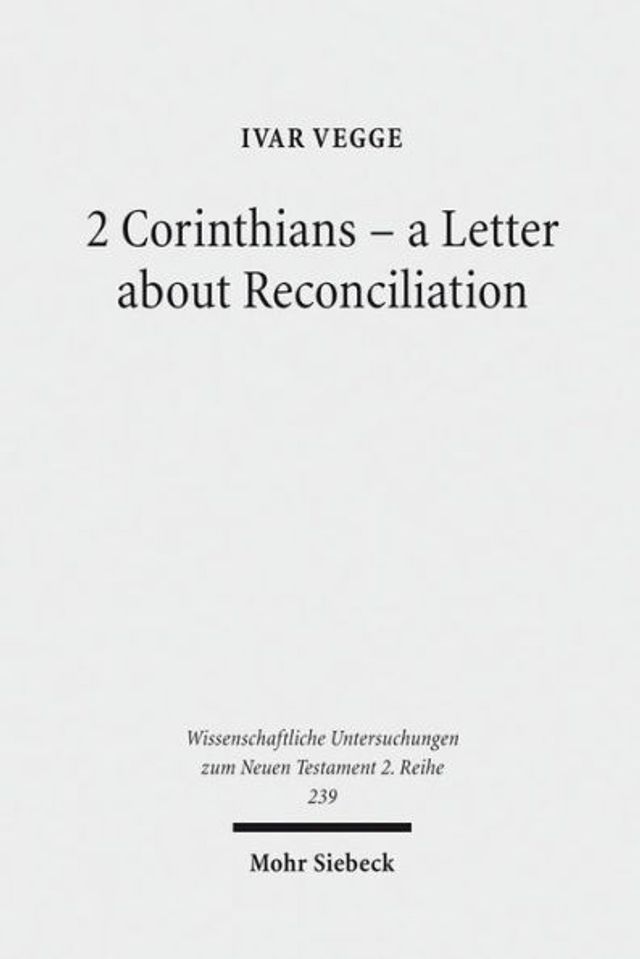Home
2 Corinthians - a Letter about Reconciliation: A Psychagogical, Epistolographical and Rhetorical Analysis
Barnes and Noble
2 Corinthians - a Letter about Reconciliation: A Psychagogical, Epistolographical and Rhetorical Analysis
Current price: $130.00


Barnes and Noble
2 Corinthians - a Letter about Reconciliation: A Psychagogical, Epistolographical and Rhetorical Analysis
Current price: $130.00
Size: OS
Loading Inventory...
*Product information may vary - to confirm product availability, pricing, shipping and return information please contact Barnes and Noble
Ivar Vegge shows that the ancient Mediterranean world was especially sensitive to idealized praise and blame or threats as hortative means. This is reflected in the pedagogy of the moral philosophers (psychagogy) and in the letter-writing tradition (epistolography), and to some extent also in the rhetorical tradition. Paul utilizes this method in 2 Corinthians. Developing a suggestion by R. Bieringer, the author starts by arguing that 2 Cor 7:5-16 is a highly idealized description of reconciliation (i.e. praise) where the aim is to exhort to full reconciliation. He then interprets a number of idealized expressions of confidence in the addressee - spread throughout the letter - as supporting the appeals for reconciliation with Paul and the collection. 2 Cor 10-13 resembles the harsh tone and aim of Paul's tearful letter - i.e. sorrow leading to the Corinthians' repentance and finally to reconciliation with Paul (cf. 2 Cor 2:1-4; 7:5-12), as claimed by partition theories (Hausrath-Kennedy, Weiss-Bultmann and Schmithals-Bornkamm) - but is not itself the tearful letter. Paul simply reuses the same strategy. The apologetic elements in the letter repeatedly lead up to and substantiate the appeals for reconciliation. This leads to the conclusion that 2 Corinthians is one single letter about reconciliation.


















